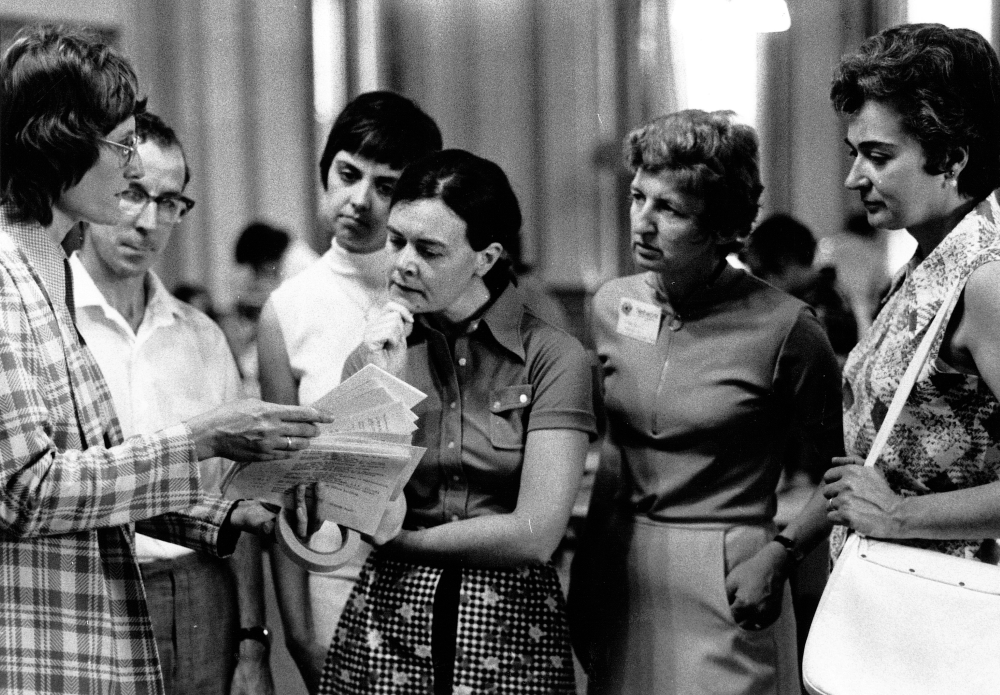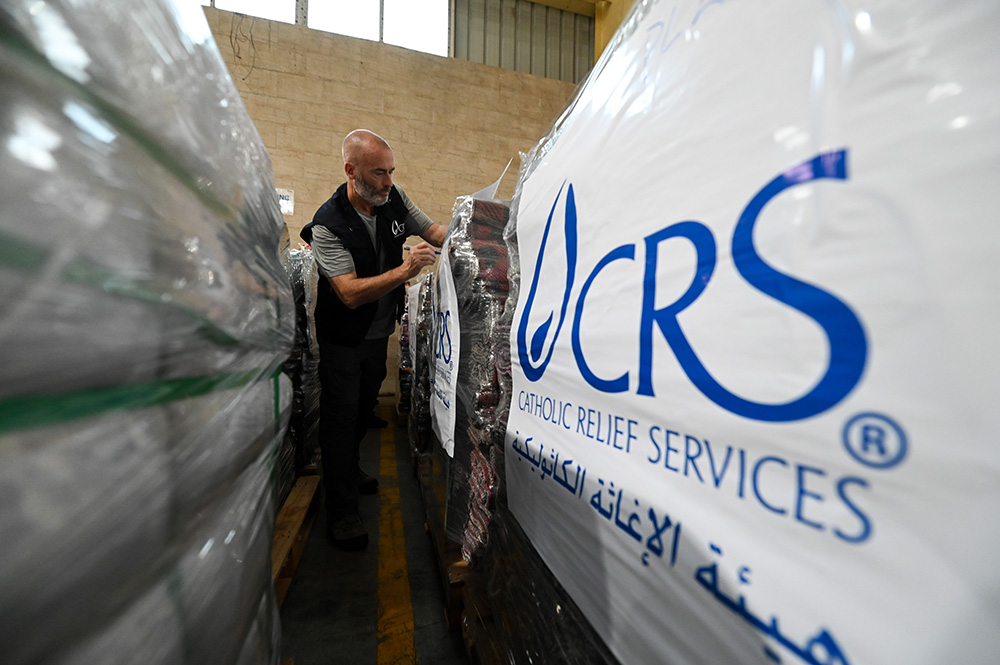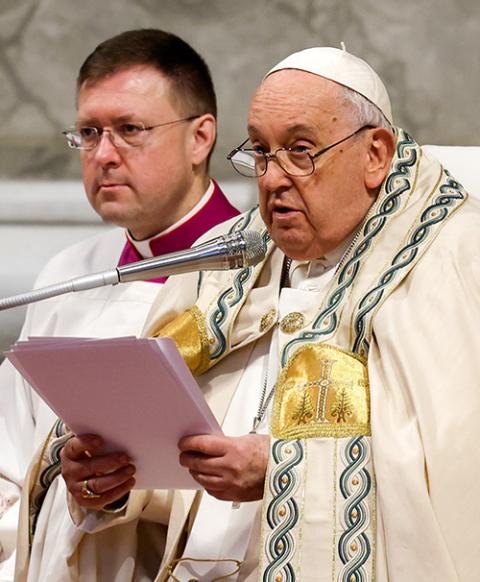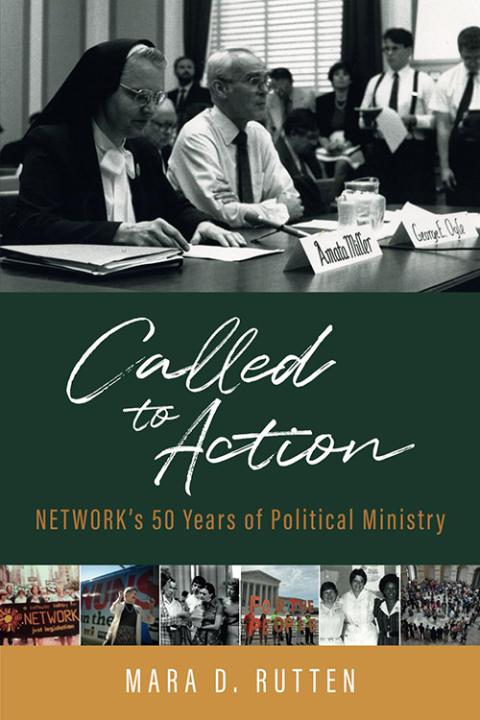
Delegates at a 1974 Network legislative seminar (Courtesy of Network Lobby for Catholic Social Justice)
Editor's note: Global Sisters Report's Monday Starter is a feature from GSR staff writers that rounds up news from or about women religious that you may otherwise have missed.

A new book examines and celebrates the 50-year-plus history of Network, the sister-founded Catholic social justice lobby.
Called to Action: NETWORK's 50 Years of Political Ministry is written by Sr. Mara Rutten, Network's historian and a Sister of Mercy.
The book chronicles how 47 Catholic sisters, inspired by Catholic social teaching and the reforms of Vatican II, came together in 1971 to "build a more just world," said promotional material for the new book, published in December.
"The result was the founding of NETWORK, the nation's first Catholic Social Justice lobby, and the establishment of a new kind of ministry which called for working within the political system to advocate for those on the margins. The sisters who founded NETWORK called their work 'political ministry.' "
The book focuses on how the social justice lobby "offered an alternative vision of what it means to be church as it worked to advance the rights and dignity of all peoples, occasionally running afoul of powerful political and church interests."
Among those praising the book is St. Joseph Sr. Elizabeth Johnson, professor emerita of Fordham University in New York, who called it "inspiring and informative."
"In quick, graceful prose it tells a good story laced with drama, uncertainty, conflicts with the powerful in church and society, some brilliant successes, and deep faith," she said.
Calling it a "gem of a book," Johnson added: "Every organization should be so lucky as to have its first half-century written up with such clarity and flair."
The 158-page book, published by Bowker Identifier Services, is available on Amazon.
Chicago event will bring together sisters under 65
What is being called an unprecedented gathering of the global sisterhood for sisters under 65 will focus on future and present challenges and realities for Catholic sisters.
The global Jan. 25-28 event — which will be held both in-person in Chicago and virtually — will explore the question, "How are we risking hope as we create bridges into our future?"

Downtown Chicago (Dreamstime/Prochasson Frederic)
"As we look at our current and emerging realities, it is vital for those who will be living this future to have conversations about what is needed now to help move into the future," an announcement said.
The event is being organized by the sister-led Leadership Collaborative, which is committed to "transformational leadership for religious life and the gospel mission, now and into the future." The collaborative has the participation of more than 700 women leaders and 100 congregations.
The sessions will be conducted in both English and Spanish. The in-person events will be held at the Sheraton Suites near Chicago's O'Hare Airport.
Further information about the event is available here.
Funding for the event is being provided by the Conrad N. Hilton Foundation, a major funder of Global Sisters Report, and the GHR Foundation.
Gaza, Ukraine top list of CRS' crises to watch in 2024
The humanitarian crisis in Gaza and the ongoing war in Ukraine top the list of Catholic Relief Services' most pressing humanitarian crises to watch in 2024.
Also of concern to the Baltimore-based humanitarian organization are the complex emergencies in the Sahel region, the semiarid region of western and north-central Africa extending from Senegal eastward to Sudan, and the ongoing global food crisis.
Advertisement
"As we go into the New Year, millions of people across the world are experiencing deprivation, loss and disruption to their lives, due to circumstances beyond their control," Caroline Brennan, CRS emergency communications director said in a Dec. 19 statement.
"A moment of crisis can change the trajectory of people's lives, and have ripple effects that last years, especially for those who are exposed to extreme, life-threatening danger and hunger. We have to mobilize our collective efforts in aid, advocacy, funding and prevention to help people not only survive but have the means for recovery and resilience."
The list, which only includes countries where CRS works, highlights eight humanitarian crises that CRS staff "recommend receiving increased support to save lives. Without that aid, millions more people could plunge into deepening poverty or life-threatening harm in 2024," the agency said.
At No. 1 on the list, "the humanitarian catastrophe in Gaza continues to escalate," CRS said. "Without an immediate cessation of violence and increase of humanitarian corridors, widespread suffering will continue."

Catholic Relief Services staffer Donal Reilly is seen in Cairo during the week of Nov. 12, 2023, as CRS coordinated the procurement and shipment of emergency supplies for Gazan families. (Catholic Relief Services/Sayed Hassan)
As second on the list, "The war in Ukraine continues to increase the humanitarian needs across the country, particularly for communities close to the frontline," CRS said.
Following those two crises are:
- The food crisis in East Africa;
- Ongoing needs in Central America;
- The situation in Afghanistan;
- The ongoing crisis in Sudan;
- Conflict in the central Sahel region of Africa;
- The spread of disease induced by climate change.
Salesian Missions hails focus on AI and peace
Catholic organizations and ministries marked Jan. 1 as Catholic World Day of Peace — a day hailed by, among others, New York-based Salesian Missions, the U.S. development arm of the Salesians of Don Bosco.
This year's theme focused on artificial intelligence and peace. Pope Francis, in a message, said, "The remarkable advances in new information technologies, particularly in the digital sphere, thus offer exciting opportunities and grave risks, with serious implications for the pursuit of justice and harmony among peoples."

Pope Francis gives his homily during Mass for the feast of Mary, Mother of God, and World Peace Day in St. Peter's Basilica at the Vatican Jan. 1. (CNS/Lola Gomez)
The pope added: "Any number of urgent questions need to be asked. What will be the consequences, in the medium and long term, of these new digital technologies? And what impact will they have on individual lives and on societies, on international stability and peace?"
In a Jan. 1 statement, Salesian Missions noted that technology education is a part of the overall Salesian education curriculum in a number of countries, including Bolivia, India, Myanmar and Spain.
"The goal is to educate youth with 21st-century skills so that they are able to compete in the current job market," the statement said. "Having the same access to technology as their peers is critical for their future. Salesian students come from poor and marginalized backgrounds and in some areas just having access to basic education is a challenge."
World Day of Peace was first observed on Jan. 1, 1968. Each year, the pontiff "marks the day with a special message inviting all people to reflect on the important work of building peace," the Salesians noted.






